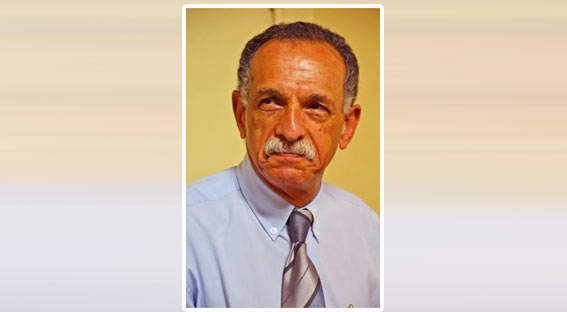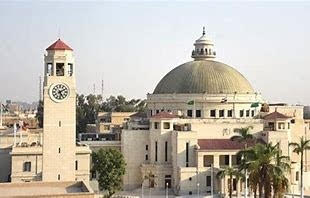WATANI International
18 April 2010
“Sectarian violence throughout two years” is the title of an eminently significant and serious study published this month by the Egyptian Initiative for Personal Rights (EIPR). The EIPR is an Egyptian NGO that monitors the situation of freedoms—especially religious freedoms—in Egypt, and issues quarterly reviews which include faithful reporting on all the violations committed on that front, whether on the popular, official or religious authorities levels.
The recent EIPR review highlights the deteriorating stability and declining social peace in the majority of Egypt’s governorates, a result of the surging sectarian violence. It calls to mind the words of Ahmed Kamal Abul-Magd, the previous deputy head of the National Council of Human Rights, who said that the unprecedented escalation in incidents of sectarian violence and the decrease in duration between these intervals was a matter of grave concern. Worse, according to Dr Abul-Magd and to the EIPR review, is that the official denial of anything wrong means that no measures are taken to rectify the situation which severely deteriorates.
I do not know whether or not the EIPR review will find its way to officials’ desks or, if it does, what would they do about it. Past history in this respect calls for no optimism. The famous 1972 Uteifi Committee report was presented to the Egyptian parliament in the wake of the beginnings of the sectarian violence, and prescribed measures to curb the violence in the cradle. Yet the legislative and executive apparatuses in Egypt preferred to refrain from confronting the sectarian ailment with the necessary cure, in favour of obscuring and denying it until it spread through the entire body of the nation. In this and upcoming issues, I intend to present a briefing on the most important points handled by the EIPR review, hoping to inform the public, which has a right to know; and the State institutions, which ought to shoulder their responsibility in confronting the problem.
The review begins by monitoring the rapidly escalating incidence of sectarian violence throughout the last two years, the sites of the sectarian incidents, and the patterns of the violence, then goes on to the thorny issue of surveying how the State handles the sectarian events. Finally, the review attempts to recommend methods to resolve the sectarian crisis by answering the difficult question of: Where do we begin? The resolutions are addressed to the Egyptian government.
Egypt, the review cites, is among those communities which include persons and groups of different religions. While many such communities possess the capacity of co-existence between the various groups, achieving the cultural wealth that is born out of plurality, others are incapable of that achievement. The result is that sectarian struggles inevitably ensue. This has been the case with Egypt and, taking into account the absence of any constructive official intervention to contain the tensions, the sectarian struggle has become a very real threat to the integrity of the community. It is imperative that Egyptians realise that this struggle is a one-way road towards polarising and fragmenting the society.
The review reveals that, between January 2008 and January 2010, Egypt witnessed 53 incidents of violence or sectarian tension, meaning that on the average, a little over two incidents occur every month. Out of Egypt’s 29 governorates, 17 were the scenes of violent incidents which were all waged by Muslims against Christians, except for one incident in which Muslims attacked Baha’is. A large proportion of these incidents took place on Fridays after Muslim prayers, while some occurred on Sundays. Young and adolescent males formed the major proportion of persons conducting the attacks.
The various patterns of sectarian violence are cited. The most common is the pattern of collective revenge, when the followers of a certain religion in an entire district are victims of a collective attack by the followers of another religion in retaliation for a mistake committed by a member belonging to the former religion. The vast majority of such sectarian incidents were waged by Muslims against Copts, owing to an irrational conviction that all Christians should be made to pay for the mistake committed by a Christian in no way related to them. The second pattern of collective revenge targets Christians who attempt to conduct religious rituals in a new church they build, in an existing one which they restore or expand, or in a building they convert into a church, or again by holding prayers in an ordinary building or inside the home of one of them. The situation is rejected not only by neighbouring Muslims, but also by representatives of the State, who refuse the gathering of Christians for prayer in one of their homes, and retaliate by arresting the worshippers and questioning them. Such behaviour on the part of State representatives has acted as an incentive for Muslims to protest against Christians holding prayers; in which case the Muslims and the State stand on the same side.
The review cites cases in which police officers were involved in inciting the Muslim residents against the presence of a Christian place of worship in the neighbourhood. Following the predictably ensuing violence, the security authorities rush to close down the place of worship and place it under guard so that no prayers would be conducted there again. Such cases have involved the forced halt of construction of private houses or homes under the pretext that there were suspicions they would be later used for worship. To say nothing of the by-now familiar cases of authorities banning Christians from conducting urgent repairs to existing churches or forcing others to remove the crosses from above their churches lest they threaten social peace and irritate the Muslim neighbours.
These are not the sole patterns of sectarian violence; there are more to come.










